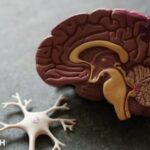
Table of Contents
Introduction
The ginkgo biloba, commonly referred to as the maidenhair tree, is among the most ancient tree species that continue to exist on earth. For centuries, its leaves and seeds have been utilized in traditional medicine. Presently, it is a prevalent supplement employed to promote brain function, memory, and overall health. In this discourse, we will delve into the advantages and likely side effects of ginkgo biloba.
What is Ginkgo Biloba?
The ginkgo biloba tree is an indigenous plant of China that is extensively cultivated in several regions across Asia, Europe, and the United States. Its distinctively-shaped leaves resemble fans and are renowned for their unique appearance. In traditional Chinese medicine, the leaves of ginkgo biloba have been used to enhance memory and circulation.
Furthermore, these leaves comprise an assortment of bioactive substances such as flavonoids, terpenoids, and organic acids, which are believed to possess an array of health advantages.
Benefits of Ginkgo Biloba
Improved Brain Function
One of the most well-known benefits of ginkgo biloba is its ability to support brain function. Several studies have found that ginkgo biloba can improve cognitive function, memory, and attention in healthy adults. In addition, it is believed that the bioactive compounds in ginkgo biloba help to improve blood flow to the brain, which in turn supports brain health.
Anti-Inflammatory Properties
Ginkgo biloba has been found to have potent anti-inflammatory properties. This makes it a useful supplement for those suffering from inflammatory conditions such as arthritis. Studies have found that ginkgo biloba can reduce inflammation and pain associated with arthritis.
Antioxidant Effects
Ginkgo biloba contains powerful antioxidants that help to protect cells from damage caused by free radicals. Free radicals are unstable molecules that can damage cells and contribute to the development of chronic diseases such as cancer, heart disease, and Alzheimer’s disease.
Reduced Anxiety and Depression
Ginkgo biloba has been found to have anxiolytic and antidepressant effects. In addition, studies have shown that ginkgo biloba can reduce symptoms of anxiety and depression in people with these conditions.
Improved Vision and Eye Health
Ginkgo biloba has been found to have benefits for vision and eye health. It is believed that the antioxidants in ginkgo biloba help to protect the retina from damage caused by free radicals. This can help to prevent age-related macular degeneration, a leading cause of blindness in older adults.
Potential Side Effects of Ginkgo Biloba
While ginkgo biloba is generally considered safe, there are some potential side effects to be aware of. These include:
Gastrointestinal Issues
Some people may experience gastrointestinal issues such as nausea, vomiting, and diarrhea when taking ginkgo biloba.
Headaches and Dizziness
Ginkgo biloba may cause headaches and dizziness in some people.
Allergic Reactions
Some people may be allergic to ginkgo biloba and experience allergic reactions such as skin rashes, itching, and swelling.
Bleeding
Ginkgo biloba may increase the risk of bleeding, particularly when taken with blood-thinning medications.
Interaction with Medications
Ginkgo biloba may interact with certain medications, including blood-thinning medications, antidepressants, and anti-seizure medications. Therefore, if you are taking any medications, it is important to talk to your doctor before taking ginkgo biloba to avoid any potential interactions.
How to Take Ginkgo Biloba
Ginkgo biloba, a dietary supplement, can be procured in an assortment of formulations, like capsules, tablets, and liquid extracts, among others. To determine the recommended amount of ginkgo biloba to be consumed, one must factor in the particular form of the supplement being used, as well as the purpose for which it is being taken. Consequently, it is essential to scrupulously heed the guidelines enunciated on the product label, and furthermore, consult with a healthcare provider prior to partaking in the consumption of ginkgo biloba.
Conclusion
Ginkgo biloba, an extensively popular dietary supplement, is believed to confer a plethora of health benefits. Its efficacy in bolstering brain function and ameliorating memory impairment, in particular, is highly regarded. However, it is crucial to be cognizant of possible side effects and to consult with a physician beforehand if you are taking any prescription medications. By incorporating ginkgo biloba into your healthcare regimen, you can potentially foster an enhancement in your general health and well-being.
FAQs
Is ginkgo biloba safe to take with other supplements?
Ginkgo biloba may interact with other supplements or medications, so it is important to talk to your doctor before taking it with other supplements.
Can ginkgo biloba help with tinnitus?
Some studies suggest that ginkgo biloba may help reduce the symptoms of tinnitus, but more research is needed.
How long does it take for ginkgo biloba to work?
The effects of ginkgo biloba may take several weeks to become apparent, so it is important to take it consistently and to be patient.
Can ginkgo biloba help with ADHD?
Some studies suggest that ginkgo biloba may help reduce symptoms of ADHD, but more research is needed.
Can ginkgo biloba help with hair loss?
While ginkgo biloba is sometimes touted as a remedy for hair loss, little scientific evidence supports this claim.








